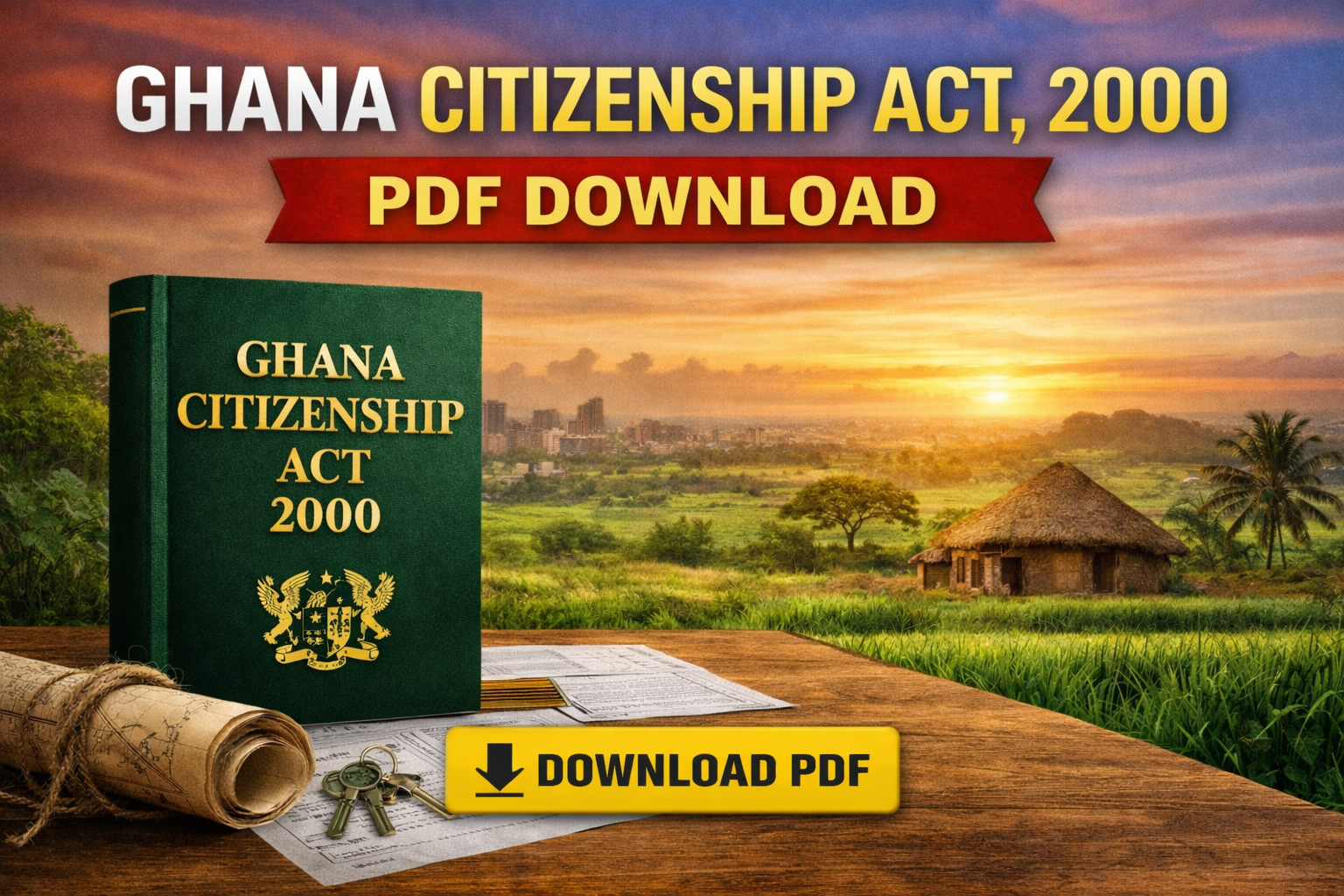
Summary of the Ghana Citizenship Act, 2000 (Act 591)
The Ghana Citizenship Act, 2000 (Act 591) is the primary law that defines how Ghanaian nationality is acquired, retained, or lost. Enacted to align with the 1992 Constitution, it consolidates all earlier nationality laws and remains the foundation of Ghana’s citizenship policy today.
The Act outlines four main categories of citizenship:
-
Citizenship by Birth – Automatically granted to anyone born in or outside Ghana with at least one Ghanaian parent or grandparent.
-
Citizenship by Registration – Available to individuals married to Ghanaians, adopted children, and qualifying residents from approved countries.
-
Citizenship by Naturalization – Granted to foreign nationals who have lived in Ghana for several years, are of good character, understand a local language, and contribute to national development.
-
Dual Citizenship – Allows Ghanaians to hold another nationality, subject to certain public-office restrictions listed in Section 16.
The law also details the process for renunciation or deprivation of citizenship, establishes requirements for naturalization applications, and empowers the Minister for the Interior to issue regulations and certificates.
Overall, Act 591 safeguards the rights of Ghanaians at home and abroad while ensuring that citizenship is based on legal integrity, national security, and cultural inclusion.
